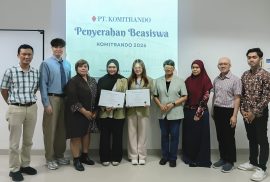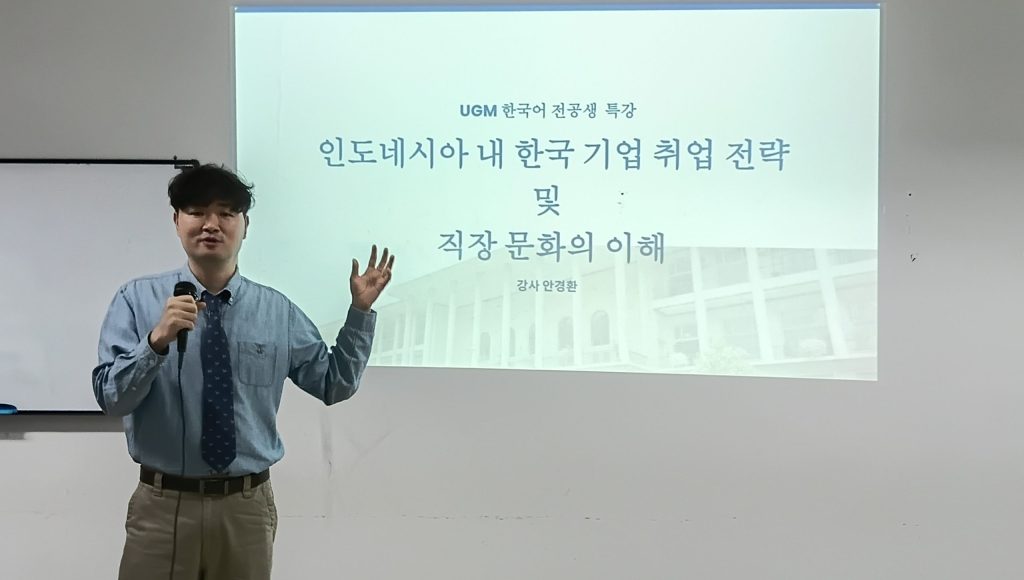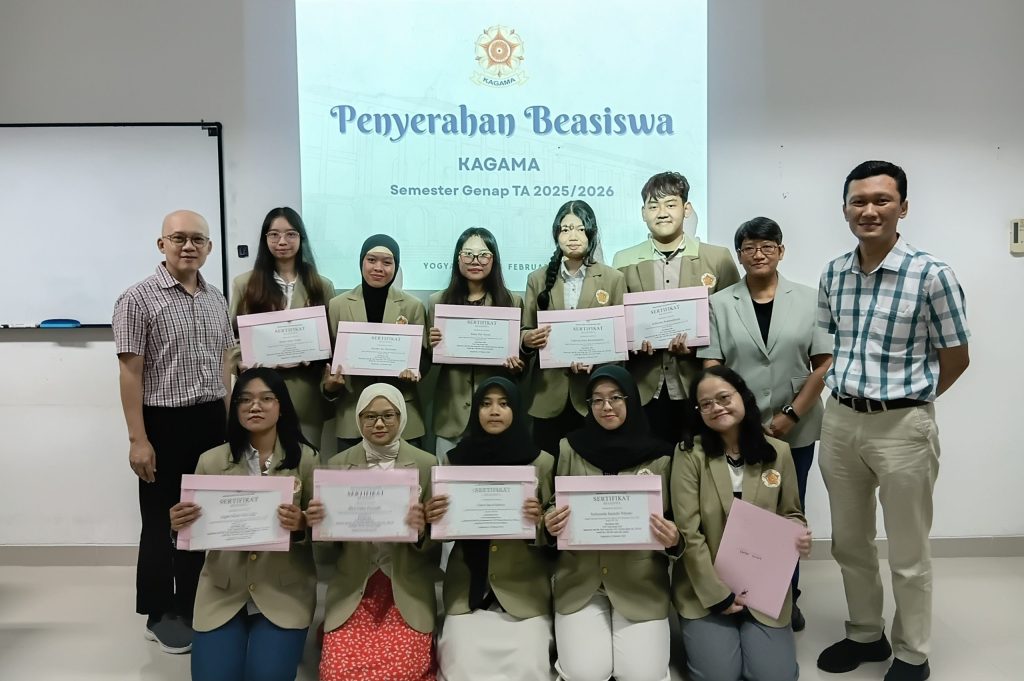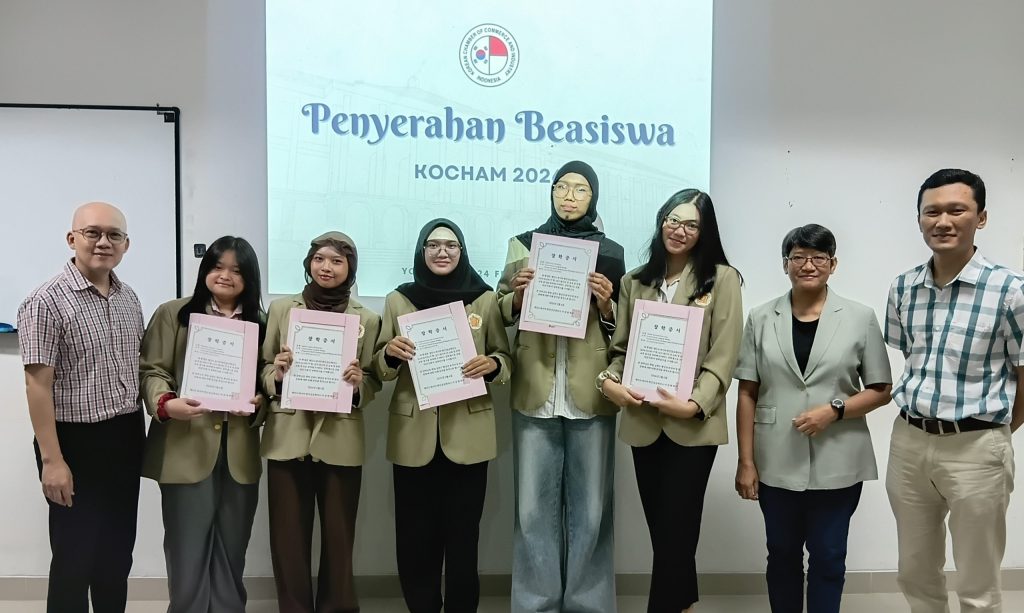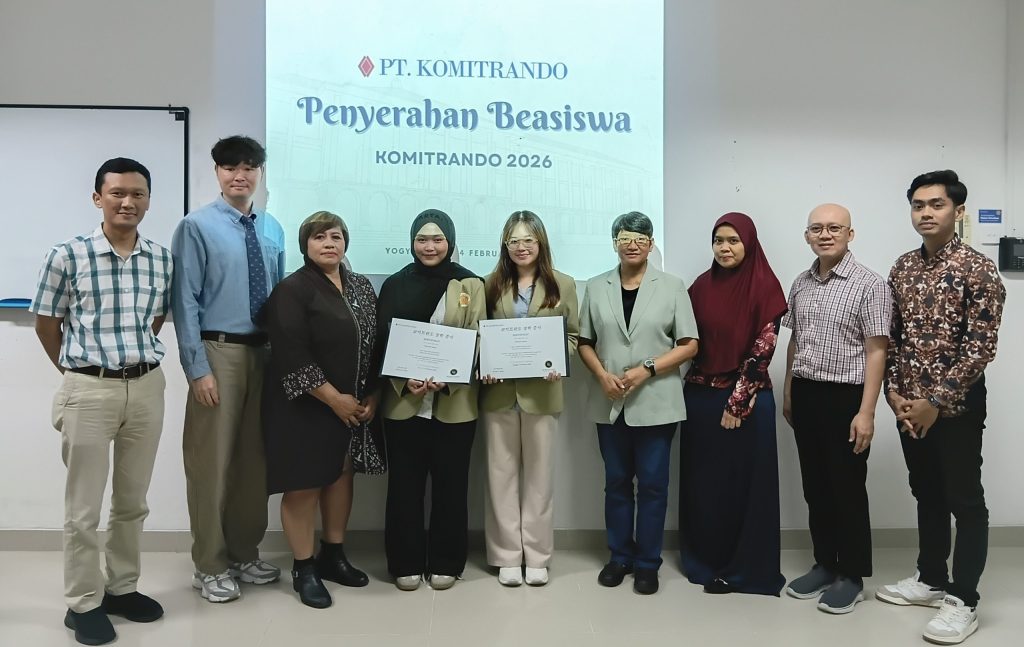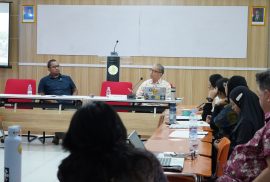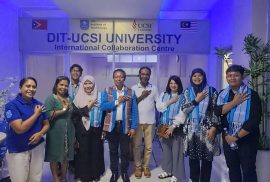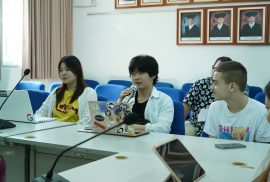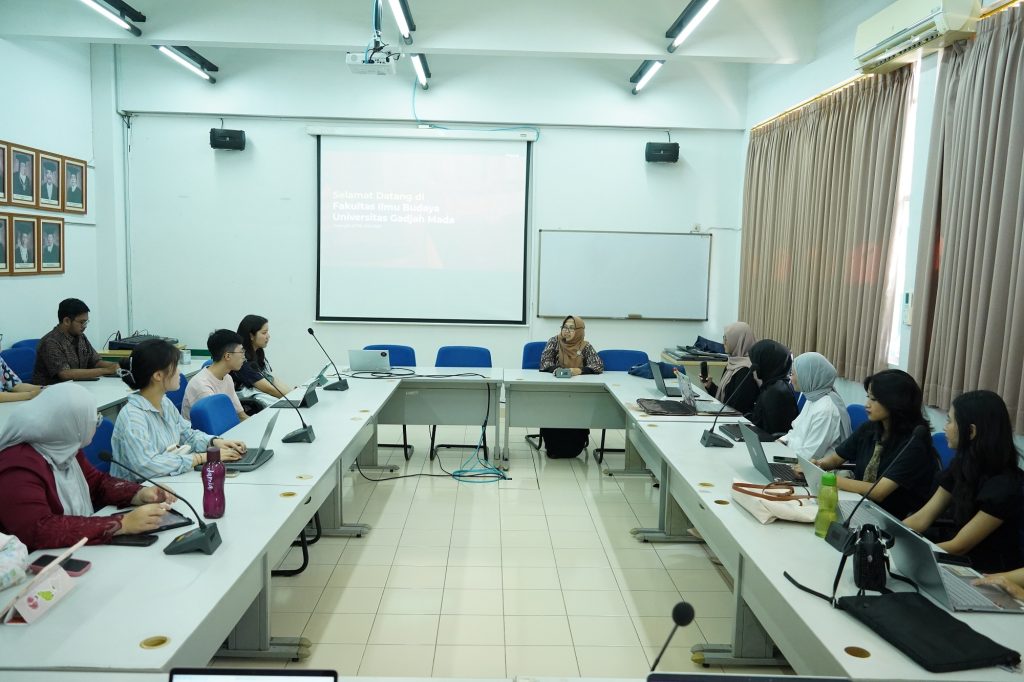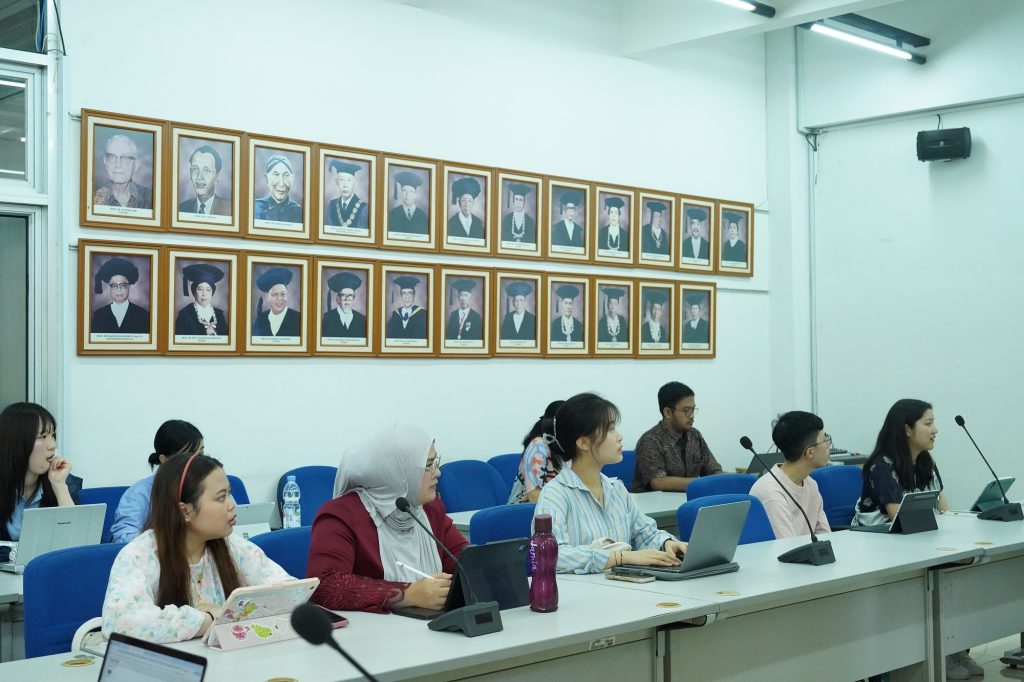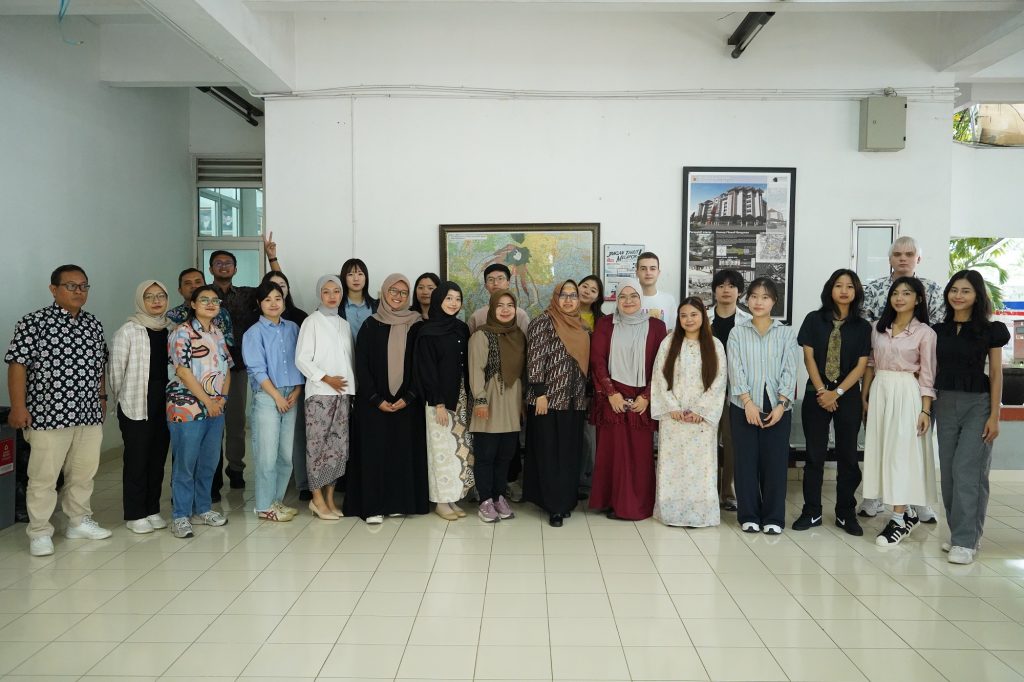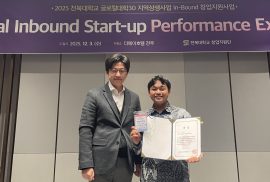Yogyakarta, February 24, 2026 — The Korean Language and Culture Study Program, Faculty of Cultural Sciences, Universitas Gadjah Mada, once again demonstrated its commitment to enhancing educational quality through the awarding of scholarships to outstanding students. The scholarships granted in this semester include the KAGAMA Scholarship for the even semester of Academic Year 2025/2026, the KOCHAM Scholarship, and the KOMITRANDO Scholarship.
The event was held at Soegondo Building, Faculty of Cultural Sciences, Rooms 521–522, from 1:00 to 1:30 PM (WIB). It was attended by representatives of KOMITRANDO, all scholarship recipients, and students enrolled in the Academic Korean Language course.
The program began with an opening by the Master of Ceremony, followed by remarks from Achmad Rio Dessiar, B.A., M.A., Ph.D., Head of the Korean Language and Culture Study Program. In his speech, he expressed his appreciation to the scholarship recipients as well as to the partner institutions for their continued support in strengthening the quality of higher education. The remarks were followed by a speech from Ms. Irene, Operational Director of KOMITRANDO.
Following the speeches, the event proceeded with the scholarship awarding session. The KAGAMA Korea Scholarship was presented first to ten high-achieving students as recognition of their academic excellence. This scholarship is awarded every semester with a grant of IDR 1,000,000 per student. The recipients are as follows:
- Angela Marta Putri Ajita (GPA 3.73)
- Rabia Nur Aisyah (GPA 3.70)
- Azzahra Ika Novitasari (GPA 3.68)
- Meilia Sekar Arum (GPA 3.68)
- Ardhanika Brahmadhinata (GPA 3.82)
- Allysa Fadhia Pramudita (GPA 3.77)
- Gabriela Putri Ratnaningtyas (GPA 3.75)
- Dinar Insan Sakinah (GPA 4.00)
- Farida Hanum (GPA 4.00)
- Xadiyazelda Rajafathi Wibowo (GPA 3.94)
The ceremony continued with the awarding of the KOCHAM Scholarship to five students, each receiving IDR 5,000,000. The recipients are:
- Alma Naya Kamila (GPA 3.82)
- Salwa Aulia Maharani (GPA 3.78)
- Tamara Nasrina Prameswari (GPA 3.94)
- Irene Xaviera Lovryna (GPA 3.87)
- Brigitta Angela Limanto (GPA 3.85)
In the final session, the KOMITRANDO Scholarship was presented to two selected students. The scholarship is provided in the form of educational financial support to facilitate the recipients’ academic progress. The awardees are:
- Theresia Chindyawati (GPA 3.89)
- Difta Maulifa Sakina (GPA 3.85)
To conclude the event, Theresia and Difta delivered their impressions and messages as representatives of the KOMITRANDO scholarship recipients. They expressed their gratitude, describing the scholarship as both an honor and a motivation to continue striving for academic excellence and to complete their studies successfully.
The event concluded with a group photo session involving all scholarship recipients.
This initiative not only served as an appreciation of students’ academic achievements but also as an inspiration for other students to pursue excellence, while reaffirming the commitment of the Korean Language and Culture Study Program to fostering an academic environment that supports educational sustainability and student development.
Author: Aura Adiba Wijaya Litianko

